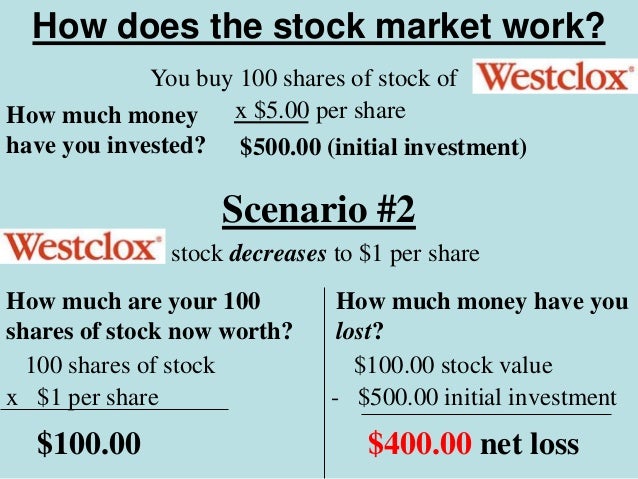If the idea of purchasing the stock market frightens you, you are not alone. People with really minimal experience in stock investing are either frightened by scary stories of the typical investor losing 50% of their portfolio valuefor example, in the two bear markets that have actually currently occurred in this millennium or are beguiled by "hot pointers" that bear the guarantee of substantial benefits however hardly ever settle.
The reality is that investing in the stock market carries danger, however when approached in a disciplined way, it is one of the most effective methods to construct up one's net worth. While the worth of one's house usually represents the majority of the net worth of the typical private, many of the wealthy and extremely abundant generally have the majority of their wealth invested in stocks.
Key Takeaways Stocks, or shares of a business, represent ownership equity in the company, which provide shareholders voting rights as well as a recurring claim on corporate profits in the kind of capital gains and dividends. Stock exchange How Does Investing Work are where specific and institutional financiers come together to buy and sell shares in a public venue.
A private or entity that owns 100,000 shares of a business with one million impressive shares would have a 10% ownership stake in it. The majority of business have exceptional shares that face the millions or billions. Typical and Preferred Stock While there are two main kinds of stockcommon and chosenthe term "equities" is associated with typical shares, as their combined market worth and trading volumes are numerous magnitudes bigger than that of preferred shares.

Preferred shares are so called because they have preference over the common shares in a business to receive dividends as well as possessions in the occasion of a liquidation. Typical stock can be further classified in terms of their voting rights. While the basic facility of typical shares is that they need to have equal ballot rightsone vote per share heldsome companies have double or several classes of stock with various voting rights attached to each class.